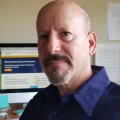BlackHat 2019: An Urgent Call for “Public-Interest Technologists"
Harvard’s Bruce Schneier warns of dire consequences if security experts remain uninvolved with policy discussions much longer
If you had any lingering doubt that computer security and privacy are not public policy issues, just look at recent headlines with national politicians from both sides of the aisle calling for closer oversight of the technology industry.
With another national election looming – and no shortage of issues where technology and politics are increasingly linked –Washington and Silicon Valley still find themselves struggling to understand each other, according to noted technologist and Harvard Kennedy School Fellow, Bruce Schneier.
Schneier, who made his comments at the BlackHat 2019 conference, reached back six decades to quote the English novelist CP Snow who essentially described a fundamental misunderstanding between the scientific and human traditions in liberal societies as a kind of dialogue of the deaf with little understanding between them.
When Snow published his now-famous essay in 1959, Schneier said that wasn’t a major problem since, for the most part, technology and policy didn’t interact much with each other. “We had television and Tang,” he said.
Nowadays, though, computer security has become a public policy issue and he said that it’s no longer acceptable for technology and policy to be in different worlds.
“There’s a culture of technologists who build cool tools without regarding how they affect society and then there’s the world of policy…who will criticize technology without really understanding technology,” he said.
The reality is that technology now informs vital public policy issues ranging from election security to data privacy to critical infrastructure with little involvement of technologists in policy discussions.
“The internet is no longer a separate thing,” he said. “It’s part of everything.”
He described the widely-held belief within Silicon Valley that technology is politically neutral as “a perverse myth.”
“That’s not true,” he said. “Our work is deeply embedded in policy. All technology affects the world we live in.”
Warning of the consequences if the two sides drift ever farther apart, Schneier put out a call for the creation of what he described as “public-interest technologists.” These would be people from the technology industry who would be willing to work inside government, academia and NGOs in order to craft policy as well as bolster security to agencies and groups working in the broader public interest.
“Policy makers need to understand technology,” he said, adding that government discussions ought to be informed by the relevant technologies. “The reality is the opposite,” he said.
He drew an analogy with attorneys who specialize in public interest law, a branch of the legal profession that didn’t exist as late as the 1970s. But with the help of foundations willing to fund positions at organizations such as the NAACP or ACLU, interest in public law practice soared in subsequent years.
“20% of Harvard law grads go into public interest law,” Schneier said. “The number of
Harvard computer science grads going into public interest work is probably zero.
Not because they’re immoral but because the path probably doesn’t exist.”
The future is hurtling toward us with the emergence of new technologies like blockchain, the Internet of Things and 5G, he said, upping the pressure on legislators to formulate a new set of policy tools with the help of technologists.
“There’s a lot that technologists will have to say about how to save society in the next 80 years…because this is where the core issues of society will lie.”
“We have the expertise and it’s incumbent on us to help,” he added.







We encourage you to share your thoughts on your favorite social platform.